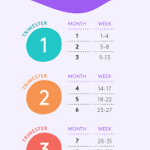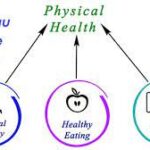
A plant-based diet is a diet that consists mostly of plants, including vegetables, fruits, grains, nuts, and seeds. This type of diet has many health benefits, including reducing the risk of heart disease, stroke, and cancer. Plant-based diets are also associated with a lower risk of obesity and type 2 diabetes.
1. Introduction
A plant-based diet is one that focuses on plants for food. This can include vegetables, fruits, grains, nuts and seeds. Some people also eat dairy and eggs, but this is not always the case.
There are many reasons why people may choose to eat a plant-based diet. For some, it is a way to improve their health. Others do it for environmental or ethical reasons.
There are many benefits to eating a plant-bas
The Benefits of a Plant-Based Diet
ed diet. These include lower rates of heart disease, obesity and diabetes. There is also some evidence to suggest that plant-based diets can help to reduce the risk of certain types of cancer.
If you are thinking of making the switch to a plant-based diet, it is important to do your research and plan ahead. There are many delicious plant-based recipes available, so you are sure to find something to suit your taste.
2. The benefits of a plant-based diet
A plant-based diet is one that focuses on plants for food. This can include fruits, vegetables, whole grains, nuts, and seeds. Some people also eat plant-based proteins, such as tofu, tempeh, and seitan.
There are many benefits of a plant-based diet.
1. Plants are nutrient dense.
Fruits and vegetables are packed with vitamins, minerals, and antioxidants. These nutrients are important for maintaining a healthy body and preventing disease.
2. Plants are low in calories.
If you’re trying to lose weight or maintain a healthy weight, a plant-based diet can be helpful. This is because plants are generally lower in calories than animal-based foods.
3. Plants are high in fiber.
Fiber is an important nutrient for gut health. It helps keep us regular and can also help reduce cholesterol and blood sugar levels.
4. Plants are good for the environment.
Eating a plant-based diet is one of the best things you can do for the environment. This is because animal agriculture is a leading cause of greenhouse gas emissions, water pollution, and deforestation.
5. Plants can help reduce chronic disease risk.
Chronic diseases, such as heart disease, stroke, and type 2 diabetes, are the leading cause of death worldwide. Studies have shown that a plant-based diet can help reduce the risk of these diseases.
If you’re thinking of making the switch to a plant-based diet, there are many resources available to help you get started.
3. The health benefits of a plant-based diet
A plant-based diet offers many health benefits. Studies have shown that people who eat a plant-based diet have a lower risk of heart disease, type 2 diabetes, and some types of cancer.
A plant-based diet is also associated with a lower risk of obesity and a lower Body Mass Index (BMI). BMI is a measure of body fatness. People who have a higher BMI are more likely to be obese.
There are several reasons why a plant-based diet may help to reduce the risk of obesity. Plants are generally low in calories and fat. They are also high in fiber, which helps to keep you feeling full.
Another benefit of a plant-based diet is that it is typically high in nutrients. Plants are a good source of vitamins, minerals, and antioxidants. These nutrients are important for maintaining a healthy body.
If you are considering transitioning to a plant-based diet, there are a few things to keep in mind. First, make sure to include a variety of plant-based foods in your diet. This will help you get all of the nutrients your body needs.
Second, focus on whole foods rather than processed foods. Whole foods are minimally processed and contain all of the nutrients of the original plant. Processed foods, on the other hand, have been stripped of some of their nutrients.
Third, pay attention to your portion sizes. When you are eating plant-based foods, it is easy to overeat. Make sure to eat only until you are satisfied, and not until you are full.
A plant-based diet offers many health benefits. If you are looking to improve your health, a plant-based diet is a great place to start.
4. The environmental benefits of a plant-based diet
A plant-based diet can have many environmental benefits. Here are four ways that eating more plants and less meat can help the planet:
1. Reducing greenhouse gas emissions
The raising of livestock is a major contributor to greenhouse gas emissions. In fact, it’s estimated that the livestock sector is responsible for 14.5% of all human-caused greenhouse gas emissions.
Eating less meat and more plants can help to reduce these emissions. A plant-based diet requires less land and water than a meat-based diet, and produces fewer greenhouse gases.
2. Conserving water
It takes a lot of water to produce meat. In fact, it takes about 15,000 litres of water to produce just 1kg of beef.
Eating less meat and more plants can help to conserve water. A plant-based diet requires less water than a meat-based diet.
3. Reducing deforestation
The livestock industry is a major driver of deforestation. In the Amazon rainforest, for example, cattle ranching is responsible for 80% of deforestation.
Eating less meat and more plants can help to reduce deforestation. A plant-based diet requires less land than a meat-based diet.
4. Reducing pollution
The raising of livestock also contributes to pollution. Animal waste can pollute waterways, and the use of fertilizers and pesticides can also have an impact.
Eating less meat and more plants can help to reduce pollution. A plant-based diet requires fewer resources and produces less waste.
Eating a plant-based diet is not only good for your health, but it’s also good for the environment. If you’re looking to reduce your impact on the planet, eating more plants and less meat is a great place to start.
5. The ethical benefits of a plant-based diet
A plant-based diet has many ethical benefits. Perhaps the most obvious is that it is more humane. Animals raised for food are often kept in conditions that are cramped, dirty, and stressful. They are also routinely subjected to cruel and painful procedures, such as tail docking, debeaking, and castration.
On a plant-based diet, you can be confident that no animals were harmed in the making of your meal.
In addition to being more humane, a plant-based diet is also more sustainable. The raising of animals for food requires a great deal of land, water, and other resources. It also generates a significant amount of pollution.
On the other hand, a plant-based diet is relatively gentle on the planet. It requires less land, water, and energy than a meat-based diet, and it generates far less pollution.
A plant-based diet is also more efficient. It takes far less grain to produce a given amount of food when that grain is fed to humans, rather than animals. This is important in a world where there is a finite amount of land and water, and where we need to produce as much food as possible to feed a growing population.
Finally, a plant-based diet has the potential to reduce suffering. Animals raised for food often suffer from diseases and parasites. They also experience a great deal of psychological stress.
A plant-based diet can help to reduce the amount of suffering in the world by reducing the demand for animal-based foods.
In summary, a plant-based diet has many ethical benefits. It is more humane and sustainable than a meat-based diet, and it has the potential to reduce suffering. If you are looking for a way to make a difference in the world, a plant-based diet is a great place to start.
6. Conclusion
If you’re considering a plant-based diet, there are many potential benefits. While more research is needed to confirm the health benefits of a plant-based diet, it is clear that this way of eating can have a positive impact on your health.
A plant-based diet can help you lose weight and keep it off. This way of eating can also help improve your cholesterol levels and lower your risk of heart disease. Additionally, a plant-based diet may help reduce your risk of developing certain types of cancer.
If you’re interested in trying a plant-based diet, there are many resources available to help you get started. There are also many delicious plant-based recipes available online and in cookbooks. With a little planning, you can easily incorporate a plant-based diet into your life.






